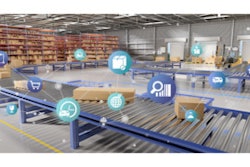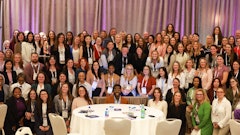
Sixty-one percent of supply chain leaders believe that the acceleration of remote work due to the pandemic will create a permanent hybrid work model, even at the frontline, according to Gartner, Inc.
“In an environment of talent and labor shortage, supply chain leaders anticipate employee expectations to become more demanding and feel that they must prepare to meet those expectations or lose to competitors that do,” says Suzie Petrusic, director of research with the Gartner Supply Chain practice. “Fifty-seven percent of respondents believe that those intensified employee expectations will also increase the costs of attracting, hiring and retaining talent.”
From Gartner:
- The supply chain of the future will be marked by flexible workspaces and work schedules, such as part-time shifts and the possibility for employees to schedule and trade their own shifts. A smaller portion of that future supply chain will enable flexibility through technology, for example, through augmented and virtual reality or exoskeletons.
- Supply chain leaders have already begun to enable collaboration. For example, 62% of respondents are currently investing in providing policy and communication tools for seamless in-person and remote work relationships.




















